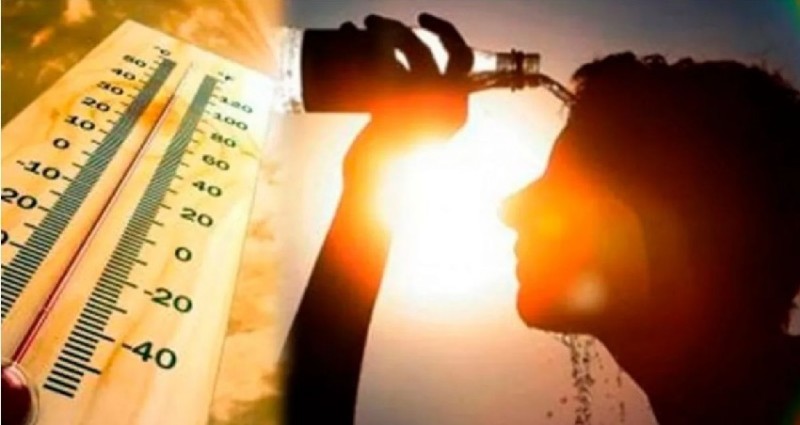
Sheikhpura, Bihar: Severe heatwave conditions in Sheikhpura, Bihar, led to several students fainting at a local school as temperatures soared to a staggering 47 degrees Celsius. The incident has highlighted concerns over inadequate infrastructure in schools, exacerbating the already dire situation.
The incident has sparked widespread criticism of the state government’s response to the crisis. RJD leader Tejashwi Yadav strongly criticized the government, stating, "There is no government and democracy in Bihar but only bureaucracy. The CM is so weak that no one listens to him, even regarding the school timings. The temperature is 47 degrees, the loo is blowing, and at least the little children should have some relaxation. The infrastructure of schools in Bihar is not good... But, there is nothing in the CM's hands."
Record-Breaking Heatwave Prompts Red Alert in Northwest India
On Wednesday, India's meteorological department issued a red alert for several parts of northwest India due to severe heatwave conditions. This alert followed record-breaking temperatures in parts of the capital, Delhi, where temperatures nearly reached 50 degrees Celsius (122 Fahrenheit).
A red alert indicates a "very high likelihood" of heat illnesses and heat strokes, urging extreme care for vulnerable populations, according to the India Meteorological Department. Unusually high temperatures are expected to continue in several parts of India, including the capital, through Wednesday.
Impact of Heatwave in Delhi
Local weather stations in Delhi's Mungeshpur and Narela neighborhoods recorded temperatures of 49.9 degrees Celsius on Tuesday, setting an all-time record for the city and exceeding normal temperatures by 9 degrees Celsius.
Due to the heat, the Delhi government has restricted water supplies, citing low levels in the Yamuna River, the city's main water source. Atishi, the local government's Water Minister, urged residents to use water cautiously, especially in areas facing supply restrictions.
Heatwave Across Asia
Millions across Asia, including India and neighboring Pakistan, are experiencing a hotter-than-usual summer this year, exacerbated by human-driven climate change, according to international scientists.
Impact on Elections and Public Health
Rising temperatures prompted additional measures during India's recent national elections in Delhi, including deploying paramedics at polling stations equipped with mist machines, shaded waiting areas, and cold water dispensers. The elections conclude on June 1, with counting set for June 4.
Delhi Implements Rs 2,000 Fine for Water Wastage Amid Severe Shortage, Details Inside